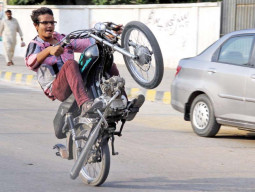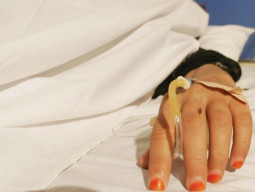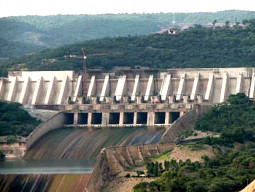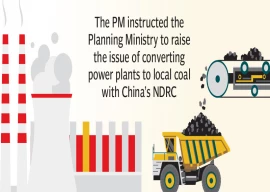
ISLAMABAD:
Pakistan is lagging far behind the benchmarks to achieving the Millennium Development Goal (MDG). A report titled “Off-track, off-target: Why investment in water, sanitation and hygiene is not reaching those who need it most,” has called for urgent measures to meet the hygiene and sanitation MDGs. The report was launched on Friday by an international charity, WaterAid, at the National Press Club.
Among other startling revelations, the report stated that missing the goals could have a massive impact on child mortality, which is already 89/1,000.
The reasons for delayed action on the government’s part include lack of political commitment and financial constraints. The situation for sanitation and hygiene are no different. The government, according to the targets set by MDGs, had pledged to reduce the proportion of people without sanitation by 50 per cent before 2015.
WaterAid Pakistan Country Representative Siddiq Khan said the report is being launched to mark World Toilet Day, which is being observed annually on November 19.
He said that according to the report, 48 million Pakistani citizens’ defecate in the open; for them, basic toilets are a distant dream. Under the MDG, Pakistan had committed to supply 93 per cent of the population with safe water and 64 per cent of the population with adequate sanitation by 2015. Yet, only 45 per cent people use improved sanitation facilities in Pakistan.
At the current rates of progress, revealed the report, the water target will be missed by seven years (2022), and the sanitation target will be met 13 years (2028) too late.
Khan said the report calls on countries in South Asia to spend at least one per cent of gross domestic product (GDP) on providing sanitation, and also on donor countries to double global aid flows to water, sanitation and hygiene by prioritising an additional US$10 billion per year.
He said that in Pakistan, sanitation and hygiene is one of the most neglected sectors and after the devolution of Ministry of Environment under the 18th Amendment there is no oversight of environment issues at federal level. The work at provincial level, he said, is not satisfactory. Khan expressed his concern over the unavailability of statistical figures on sanitation and hygiene in the country adding that only a few can be found at federal level and no work has been done at provincial level.
Limited investment in sanitation and hygiene goes to urban areas and suburbs, however far-flung areas remain neglected, he added.
Poor sanitation and hygiene causes many health problems and while quoting the World Health Organisation (WHO), he said that an estimated 97,900 people die every year due to poor water and sanitation in Pakistan. World Health Organization and Unicef estimated that every year, 54,000 children under age five in Pakistan die from diarrhoea caused by poor water and sanitation.
The report suggested that better planning and increased resource allocations are essential starting points, but real results will only be delivered if these go hand-in-hand.
It also identifies that South Asia’s poorest people are being left behind; poor people in South Asia are 13 times less likely to have access to sanitation than the rich. According to WaterAid, governments should tackle this inequity through better targeting of water and sanitation resources and services to the poor.
Published in The Express Tribune, November 19th, 2011.











































COMMENTS
Comments are moderated and generally will be posted if they are on-topic and not abusive.
For more information, please see our Comments FAQ